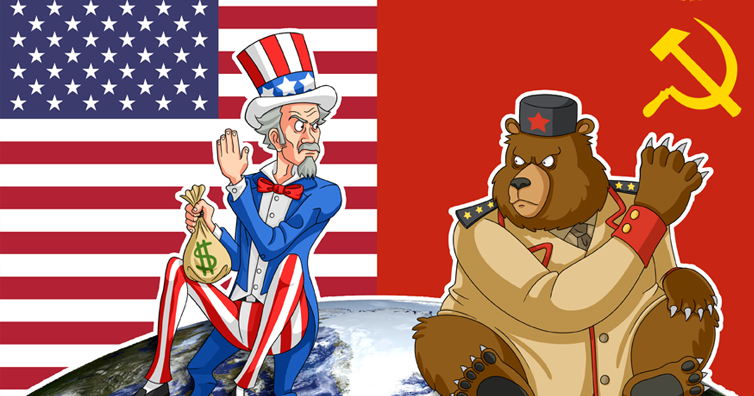
Orwell directly referred to that war as the ideological confrontation between the Soviet Union and the Western powers. Contemplating a world living in the shadow of the threat of nuclear war, he warned of a "peace that is no peace", which he called a permanent "cold war".


Īt the end of World War II, George Orwell used the term in the essay "You and the Atomic Bomb" published on October 19, 1945, in the British magazine Tribune. The word "cold" first appeared in a faulty translation of his work in the 19th century. However he used the term "tepid" not "cold". Some writers credit the fourteenth century Spaniard Don Juan Manuel for first using the term (in Spanish), when dealing with the conflict between Christianity and Islam as a "cold war".

The expression "cold war" was rarely used before 1945.


 0 kommentar(er)
0 kommentar(er)
